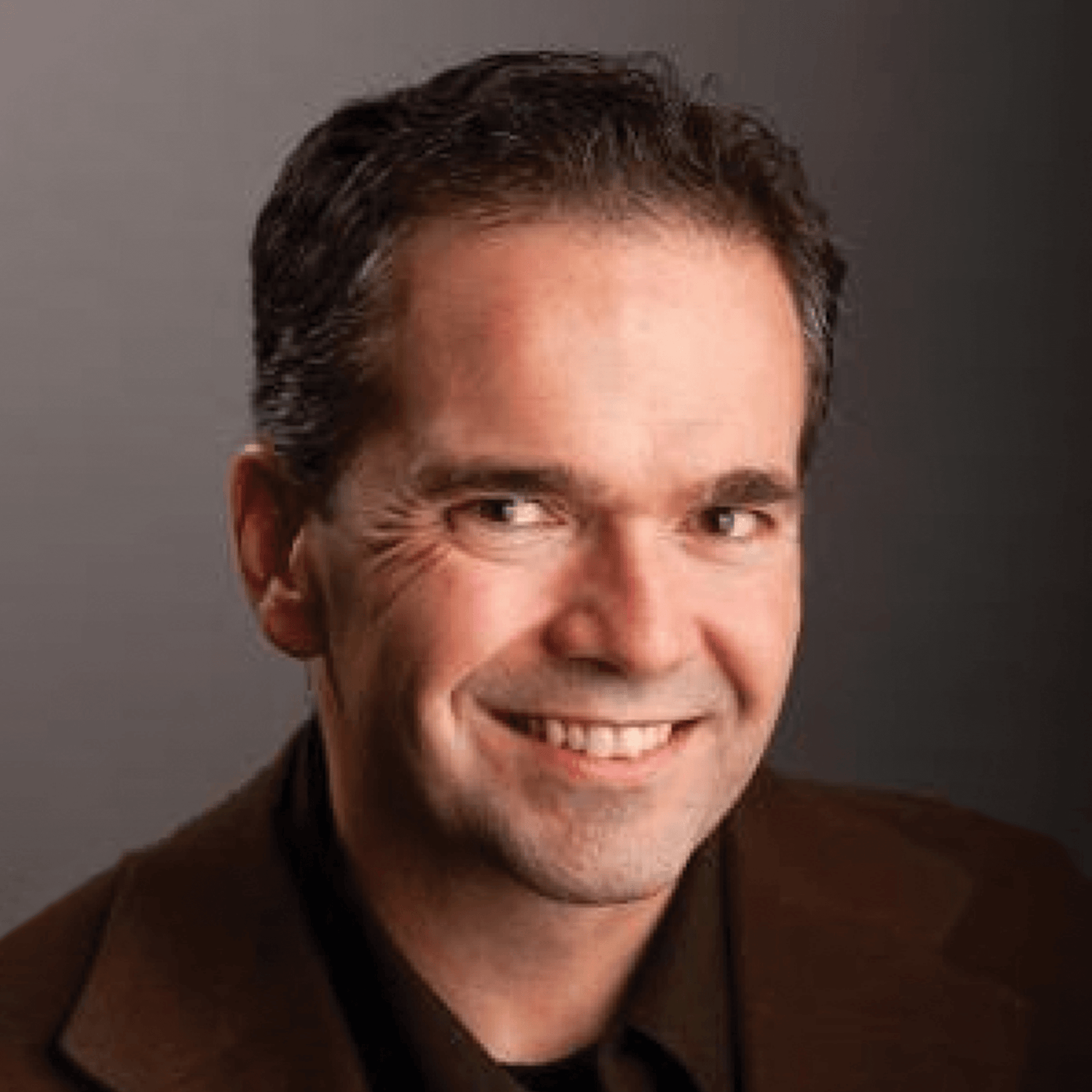The nonprofit B Lab Global operates from one extraordinarily powerful belief: business should be used as a force for good. As co-founder of B Lab Global and former President of AND 1, Bart Houlahan has been a trailblazer in the sustainable business realm throughout his career. Bart spoke with OSCEA about the mission and motivations behind B Lab Global and sustainable business more generally. Bart is the recipient of the 2014 Skoll Award for Social Entrepreneurship and the 2015 John P. McNulty Prize. He is also a Henry Crown Fellow of the Aspen Institute and an Advisory Board Member of the Center for the Advancement of Social Entrepreneurship (CASE) at Duke’s Fuqua School of Business.
The Story of B Lab Global and the B Corp Certification

B Lab Global, a nonprofit focused on changing business to be a force for good, recognizes and inspires companies to meet high standards of social and environmental performance. Bart Houlahan co-founded B Lab Global in 2006 with his partners Jay Coen Gilbert and Andrew Kassoy. However, the roots and inspiration of B Lab Global run much deeper than the non-profit’s founding. Prior to B Lab Global’s creation, Bart was President of the athletic footwear and apparel company AND 1, where he worked from 1995 to 2005. It was there, at AND 1, where Bart came to better understand and embrace values-driven business. AND 1 was not run like other companies at the time. The company instituted numerous socially and environmentally conscious initiatives that were truly pioneering. “We treated our employees like family, we created an ethical supply chain, we invested in local charities and had a direct service program and a growing commitment to the environment,” Bart details.
You might assume that these impressive practices were a response to consumer demands, but this is not the case. “The truth is our consumers didn't care about us creating a purpose-driven business. We were selling basketball shoes to 18 year old ballplayers,” Bart says. So if it wasn’t about meeting consumer demands, what was the reason behind AND 1’s conscious initiatives?
According to Bart, the company’s socially and environmentally responsible practices were merely the result of “trying to build a company (they’d) be proud of.” Through the experience of creating, maintaining, and scaling AND 1, Bart, along with his partners, discovered that using business as a force for good was more than just doing the right thing, it was actually “a better way to do business.”
The merits of using business as a force for good were proven time and time again. AND 1 prioritized creating a positive work environment with good employee pay and benefits and fostering relationships with their retailers and factories that embodied principles of mutual respect. In building the company, it quickly became apparent that these decisions did not go unnoticed by those who were impacted by them. “We had unbelievable support from our factories overseas who on multiple times bailed us out of cash challenges, and we had an employee attrition rate amongst our team of 2% or less,” Bart recalls. The company continually reaped the benefits of their sustainable business practices, perhaps most evidently at times when AND 1 found itself growing more rapidly than its capital could afford.
While the inspirations for the B Lab Global were born during the leadership of AND 1, the impetus for the creation of B Lab Global actually took place when AND 1 was sold. Bart, along with his partners, saw how quickly all of their social and environmental practices were dismantled after ownership transferred. This led Bart and his partners to found B Lab Global, a nonprofit organization founded on the idea of using business as a force for good. Created by B Lab Global, the B Corp Certification is a certification that verifies that a company holistically meets rigorous standards of social and environmental performance and has made a lasting commitment to sustainable and ethical business practices.
So, what is B Lab Global’s end-goal? According to Bart, it isn’t to build some legion of B Corps, it’s actually about enacting economic systems change and constructing an economy that works better for everyone. "It's pretty clear, if you step back, that our current economic system isn't working particularly well for all people and the planet. Our end objective is an economy that's going to create a shared and durable prosperity for all. An economy that’s more inclusive, equitable and regenerative,” Bart explains. The way that B Lab Global intends to transform our economy is through building a broader movement of individuals using business as a force for good and ultimately, changing the rules of business.
Today, there are around 5,200 certified B Corporations. While that’s impressive in its own right, Bart also points to other measures to demonstrate B Lab Global’s impact. By certifying pioneers and leaders who have taken positive social and environmental initiatives, B Lab Global shines a light on these companies, spreading their story. These stories then go on to inspire many other companies and industry players to transform their own businesses. B Corps have inspired “about 250,000 companies to use our tools to measure, manage, and improve their own social and environmental performance to be more like a B Corporation,” Bart says. “The real change is about the companies that are inspired by certified B Corporations, whether they use our impact assessment, or they use our legal framework to embed in their DNA a commitment to stakeholders,” Bart explains.
How has the B Corp Certification changed since B Lab Global’s founding?
Since B Lab Global was created in 2006, and the first B Corporations were certified in 2007, the world has changed drastically. Back in 2006, the idea of changing the legal structure of companies to embody social and environmental responsibility was almost heretical. “We fast forward to today, some 16 years later, and there is legislation in front of the parliament in the United Kingdom, that's getting real traction, that would require all companies in the United Kingdom to essentially be better,” Bart says. Thus, “the evolution over the course of the last 16 years of what people expect from business has been massive.” The idea of purpose-driven business, which was so novel at the time of B Lab’s founding, is now absolutely fundamental to understanding and navigating the world of business.As the landscape of business has evolved, and awareness and knowledge about sustainability has increased, so have the standards for B Corp Certification. B Lab Global is always reevaluating its overall performance requirements. “The idea is that if we're really going to be a community of leaders, our standards need to reflect that leadership and continue to evolve as the broader market for sustainability evolves. There’s lots of ways that those standards have changed over the course of 16 or 17 years. Our standards have iterated, and we're up to version six right now,” Bart says.
What is the process of getting B Corp Certified today?
There are three things that a company must do in order to become B Corp certified:
-
Take and Pass B Lab Global’s B Impact Assessment
“You have to take and pass an impact assessment that evaluates your impact on all of your stakeholders: your workers, the community, the environment, and your consumers” - Bart Houlahan
This step provides a holistic review of a company’s social and environmental performance, evaluating the impact that this company’s practices have on all of its stakeholders. These stakeholders include a wide range of affected individuals and entities such as workers, consumers, the community, and the environment. Your results on this assessment will be verified by B Lab Global, and a corporation must achieve a cumulative ‘B Impact Assessment’ score of 80 or above to pass this step.
-
Alter your Legal Structure
“This legal change essentially builds into the DNA of the business, a commitment not just to your shareholders, but to all of your stakeholders to make sure you're delivering value for all of them.” - Bart Houlahan
The second stop on the path to B Corp certification involves altering a company’s legal structure to ensure that any positive strides from that company are made to last. By upending the typical governance structure of a company, this step seeks to create accountability measures, so that a company will continue to prioritize the interest of all stakeholders and act as a force for good in the future. The exact nature of this required legal structure change depends on how and where the company is incorporated. For more specific information on this step, check out the B Lab Global Legal Requirement page.
-
Exhibit Transparency
“Finally, you have to be transparent; you have to share not only your areas of excellence, but also your areas for improvement.” - Bart Houlahan
The third and final step for B Corp certification, involves a commitment to transparency. To achieve B Corp certification, a company must allow information about their performance to be publicly available. This performance assessment is comprehensive, noting a company’s strengths as well as its areas for improvement. This information appears on this company’s B Corp profile on B Lab’s website.
Important Takeaways from Bart Houlahan: A Q&A on Individual Impact
- B Lab Global has made considerable strides in this push for a socially environmentally ethically, more conscious future. There are, of course, many other steps outside of this non-profit entity that need to be taken to ensure a more sustainable future. To you, what are some actions that consumers can take outside of supporting B Corporations to do their part in pursuing sustainability?
Bart: I think that there are multiple levers that individuals can take to try to create a more sustainable future. In the very accessible ones, there is the idea of what you buy and whom you buy it from. The second lever is how you invest and where you deploy your capital. And then third, probably most importantly, is where you work. How are you spending the majority of your life in terms of trying to advance a company's mission? While consumer purchases can certainly move the needle, they frankly move the needle less than capital investment. Investment has a larger impact on the broader business environment. Whether you're decarbonizing your investment portfolio, or you're deciding to invest in companies that have demonstrated leadership in sustainable business, it makes a huge difference in terms of moving the market to a more sustainable future. And then finally, how and where you work will have a greater impact than either of the first two.
- The idea that your workplace can generate such a large impact in the pursuit for more sustainable business is very interesting. Why do you believe that this is the case?
Bart: Ultimately, business is a competition for talent. When I speak to traditional corporations about the broader sustainability movement, and I tell them that it's a way to attract and retain new consumers, I don't know if they believe me. When I talk about how implementing sustainable business practices should bring in new investors into their business, they often disregard or discount that. However, when I say that it's a way to attract and retain the next generation of talent, they absolutely pay attention. In the younger generations, the millennial generation and below, people have begun to demand more from their employers. People are now looking for both money and meaning from their work; they're willing to make trade-offs in how much money they make to be sure that they're indeed working at an organization that truly is following a purpose driven pattern. The opportunity and threat of attracting and retaining the next generation of talent is moving this market more rapidly than anything.
- In order to leverage their own impact in the workplace, how do you recommend that OSCEA readers proceed?
Bart: I'm not so arrogant to believe that everyone is going to work for a certified B Corporation. However, I would encourage any of your readers, that no matter where they work, demand more. Demand more of your employer in trying to advance your values—this will have the greatest potential impact that you could possibly have. The data is absolutely overwhelming that employers are paying attention to these value-based demands and these demands are absolutely moving the needle in terms of behavior of business.
- Through my research with OSCEA and just becoming more informed more generally, I've definitely noticed a change within my own lifestyle in making better, more sustainable decisions. For instance, I find myself checking labels more carefully and really approaching the companies that I'm supporting with a more discerning eye. I’m interested in your own experience with sustainability. Have you seen sustainability manifest within your own life? If so, what does this manifestation look like?
Bart: Reflecting on my own experience, when I graduated from college, I was focused on how much money I could make as early as possible, and I went to Wall Street. Pretty quickly on Wall Street, I was tired of checking my values at the door when I sat down at work. So, I went to a smaller investment bank that was more focused on small-medium enterprises and family-driven businesses. I found that this aligned more with my values. From there, I went to AND 1, a company that was even more aligned with my values. At AND 1, I realized that there was an opportunity to do something bigger, to potentially contribute more broadly, to the idea of really using the power of the private sector to address the world's great challenges. I'm a believer in the nonprofit world and in government, they are necessary but insufficient to deal with all the issues in front of us. Business has to be more engaged in solving these enormous challenges that we're confronting whether that be wealth inequality or the accelerating climate crisis. The manifestation of sustainability in my own life has been how my work has changed: from 1989, when I went to Wall Street, to 1995, when I went to AND 1, to 2006, when I helped to co-found this nonprofit, to 2022, when I am now stepping down as Co-CEO of B Lab and moving on to an executive position on the board of directors that will be more focused on broader global movement building around business as a force for good. There isn’t a moment or an epiphany for when sustainability manifested in my life. In my experience, this awakening around using business as a force for good is a journey. It doesn't happen overnight.
Featured Image from aspeninstitute.org
Sources:
-
https://www.aspeninstitute.org/our-people/bart-houlahan/
-
https://aspireimpact.in/people/bart-houlahan/











